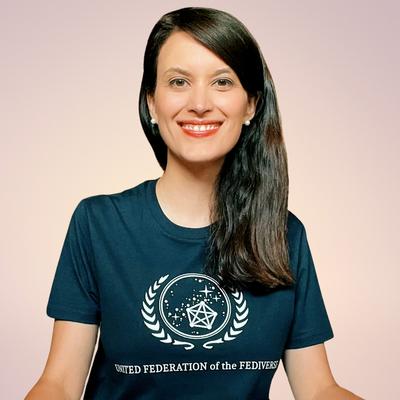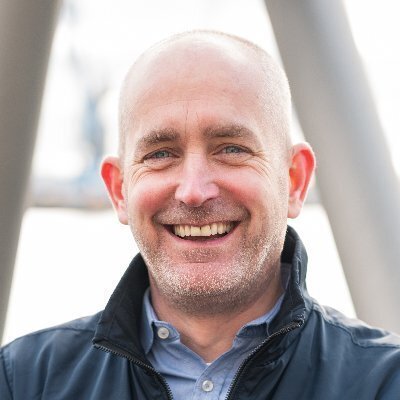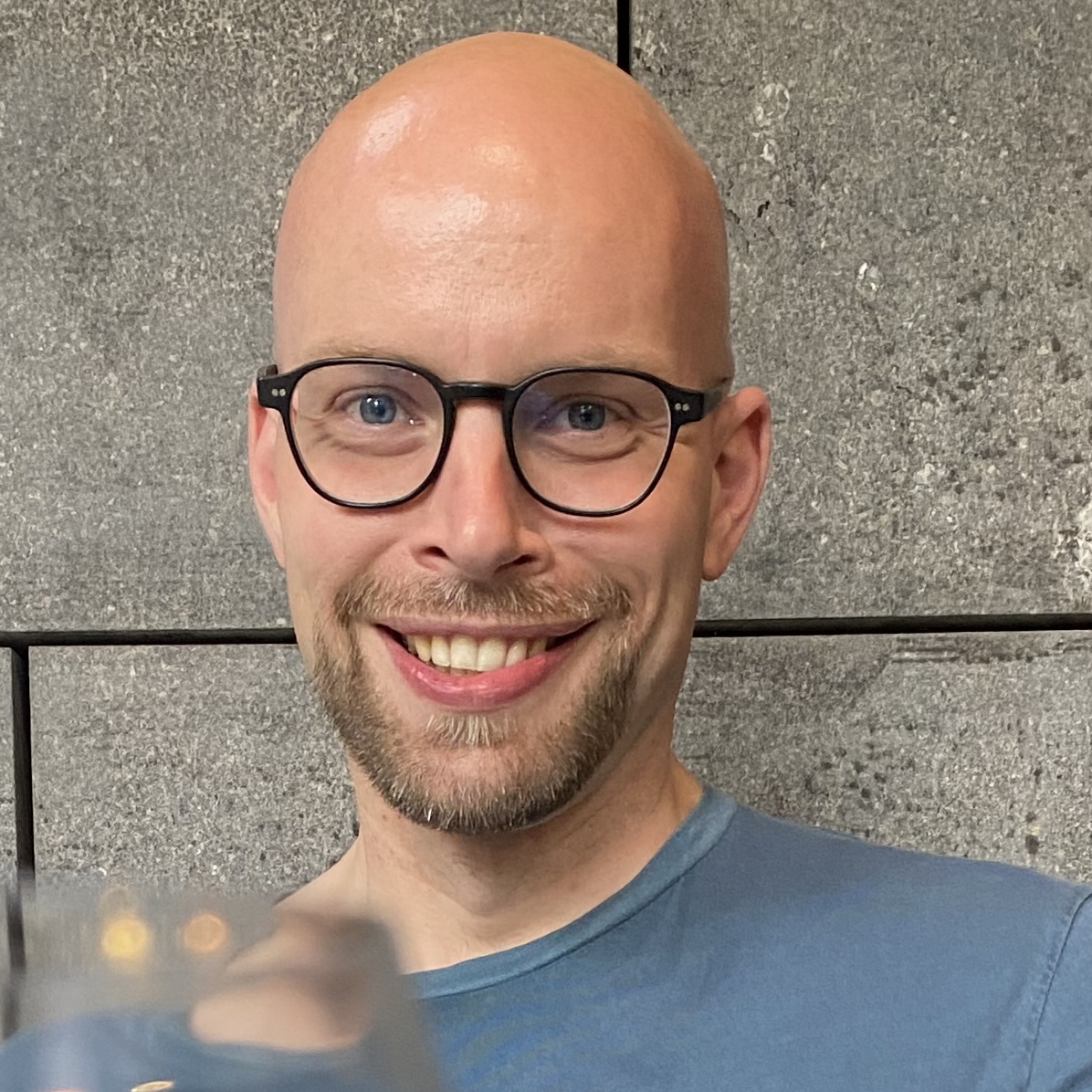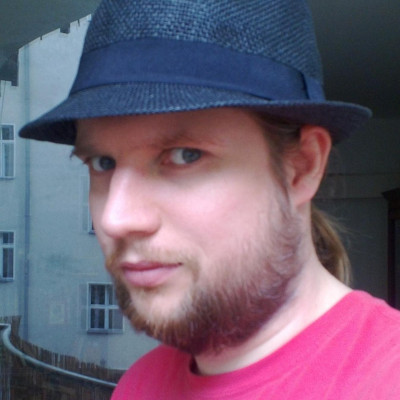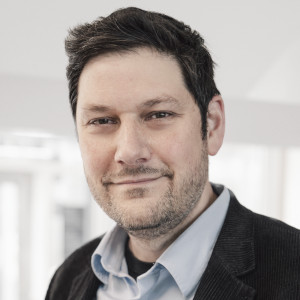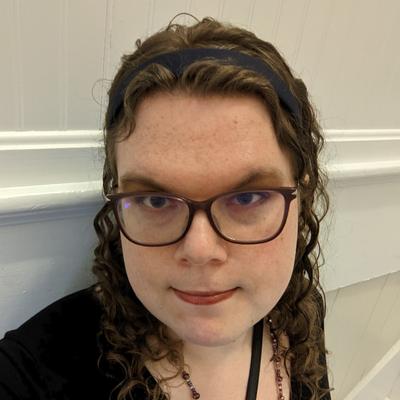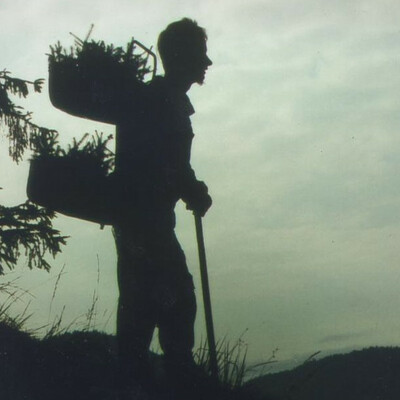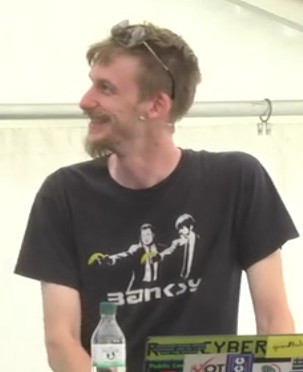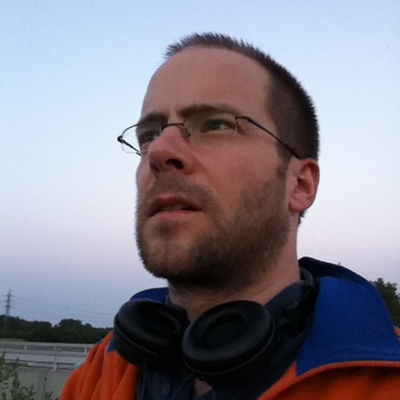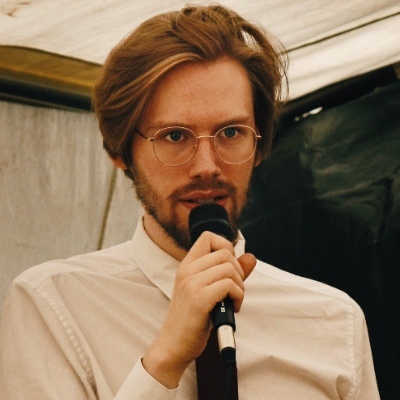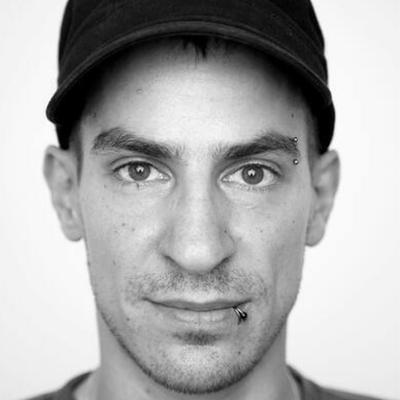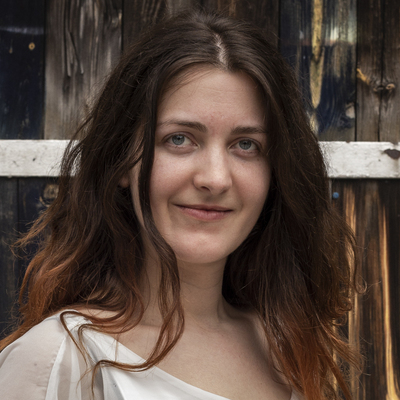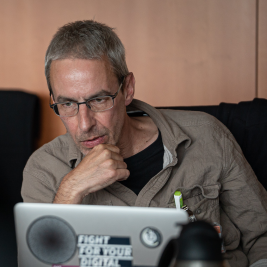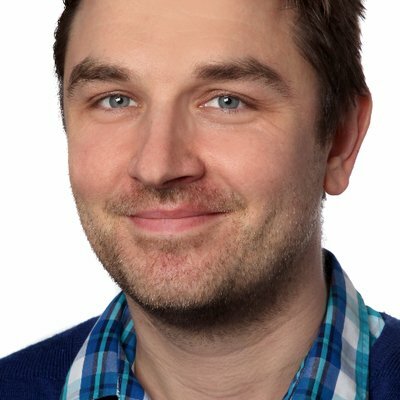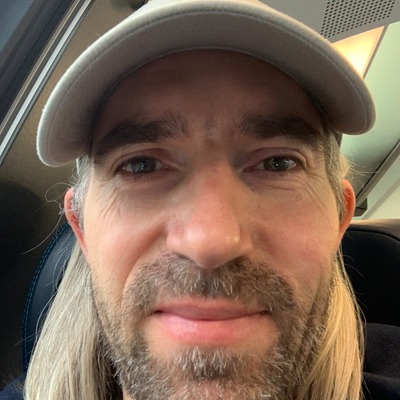DE | EN
Schedule
Friday (3. October 2025) Be Social
For all participants who are already in Berlin on Friday (public holiday!) and for the setup angels, we are hosting a small reception from 6 p.m. in the attic of Rungestraße so that everyone can get to know each other and chat. At 8 p.m., we will introduce the team and the first speakers.
Saturday (4. October 2025) The Fediverse Talks
After a successful premiere last year, the organisation behind the Berlin Fediverse Stammtisch at c-base has grown and become more professional. We are delighted to be able to present significantly more talks on two stages this year. To this end, we have rented the attic in the same building as the newly renovated main hall at c-base. All talks will, of course, be streamed via Peertube.
The recordings of the 2nd Berlin Fediverse Day can be found at the Peertubes of Digiges in the fediday channgel and c-base.
The presentations will be streamed via the Peertubes of c-base and DigiGes
- Mainhall: c-tube.c-base.org
- Rooftop: fair.tube/a/digiges_de/video-channels
We cannot offer simultaneous translation, so please pay attention to which language is indicated in the respective lectures.
- Title
- Begrüßung und Programm (DE)
- Speaker
- Corbelle
- Time / Location
- 12:00 / Mainhall
- Title
- The Future is federated (EN, DE)
- Speaker
- Elena Rossini
Italian filmmaker, photographer and writer, Paris - Time / Location
- 12:10 / Mainhall
- Summanry
-
Details
We will open the day with the film about the Fediverse by @_elena@mastodon.social. For the premiere, we are delighted to show you her film Introducing the Fediverse: A New Era of Social Media, with German narration. Elena is Italian and lives in Paris. She delights us with her films and works as a photographer and author.
- Title
- For Freedom and Sovereignty (EN)
- Speaker
- Andy Piper
- Time / Location
- 12:35 / Mainhall
- Summanry
-
Details
Andy Piper @andypiper@macaw.social is Head of Communications at @Mastodon and is responsible for the communities in the Fediverse. Andy has been working in the technology industry for many years and lives in the UK.
- Title
- Das Fediverse als Baustein für eine gemeinwohlorientierte digitale Infrastruktur (DE)
- Speaker
- Sandra Barthel
Digitale Gesellschaft, Berlin & Wien - Time / Location
- 13:00 / Mainhall
- Summanry
-
Details
Sandra Barthel @samvie@chaos.social is a political scientist and journalist. She lives and works in Berlin and Vienna. She is politically active in Europe in the field of digital public infrastructure, whether at local, national or European level. Among other things, Sandra is part of the Berlin Fediverse Stammtisch, a member of the Digital Society @digiges@chaos.social and C3W @c3wien@chaos.social. In her talk, she will highlight why the Fediverse is needed as a relevant part of a public welfare-oriented digital infrastructure for Europe.
- Title
- Save Social - Banden bilden für offene Netzwerke (DE)
- Speaker
- Björn Staschen
- Time / Location
- 13:25 / Mainhall
- Summanry
-
Details
Björn Staschen @bjoernsta@eimsbuettel.social is a journalist and media scientist and co-initiator of the ‘Save Social’ initiative. He wrote the book ‘In der Social Media Falle’ (In the Social Media Trap) and is committed to using technology to strengthen democracy.
Launched nine months ago as a loose initiative, ‘Save Social - Networks for Democracy’ is now a non-profit organisation: a strong voice of civil society that advocates for open, alternative networks and launches its own projects to this end. The goal for the coming months is to launch the Save Social petition across Europe. At the same time, Save Social is launching ‘Digital Independence Day’ (working title): a movement in which people turn their backs on big tech platforms on the first Sunday of every month.
- Title
- Mastodon als Resonanzraum für die Cybernation Deutschland - Einblicke, Erfahrungen und Ideen für die Zukunft (DE)
- Speaker
- Tobias Jobke
BSI - Time / Location
- 13:50 / Mainhall
- Summanry
-
Details
Tobias Jobke from the Federal Office for Information Security @bsi@social.bund.de tries to raise awareness for cyber security in his job. His focus is on the BSI's social media strategy. He gives us an insight into the decisions behind why and with which topics the BSI is represented in the Fediverse.
Break 14:15 to 14:45h
- Title
- Good and bad ways for the public sector to support a federated future (EN)
- Speaker
- Jos Poortvliet
Communications Director at Nextcloud - Time / Location
- 14:45 / Mainhall
- Summanry
-
Details
Network effects have been exploited by Big Tech to extract profit and influence politics. Our government has done little to push back. The once-open internet is now synonymous with a handful of corporate platforms, harming our economy, democracy, and values. Rather than becoming a software vendor or splurge on big subsidies, I suggest we begin by enforcing existing laws and create space for open, federated alternatives to flourish. Europe could also learn from the U.S. and China - invest in technologies that serve its own needs and values, instead of throwing billions at Big Tech.
Jos Poortvliet is co-founder and Communications Director at Nextcloud. He is a long time technology enthusiast and all-things-open evangelist. He has previously been community manager at SUSE and worked as business consultant at government, finance and telecom companies in the Netherlands. He is based in Berlin and loves cooking for friends, family and colleagues.
- Title
- Recht haben reicht nicht - wir müssen auch gewinnen (DE)
- Speaker
- Ralf Stockmann
- Time / Location
- 14:45 / roof terrace
- Summanry
-
Details
Reflections on the future of the Fediverse
This presentation continues the reflections from last year (‘From commercial to cultural networks’) and highlights successes as well as problems facing the Fediverse. The result is a strategic toolkit that we hope will enable us to increase the impact of our projects and plans.Never before have we had so much momentum for our ideas – keyword ‘digital sovereignty’ – but we must now act wisely so as not to squander this momentum, as has unfortunately so often been the case.
Ralf Stockmann has been an evangelist for open source, digital sovereignty and open standards in the public sector for 25 years. He initiated projects such as Kitodo, Ultraschall and Mastowall, is committed to the Fediverse with his own instance for the German library system (openbiblio.social) and advises on open infrastructures and digital transformation – including in the podcast ‘Freakshow’ with Tim Pritlove. Since 2024, he has been Director of Digital Development and Network Security at the ZLB Berlin.
- Title
- Cooperative Social Networks (EN)
- Speaker
- Evan Prodromou
- Time / Location
- 15:10 / Mainhall - The presentation is recorded, the Q&A is live via call
- Summanry
-
Details
Federation of social networks provides an opportunity for new and different business models. So, how do we implement models that are more open, fair, and democratic? The cooperative movement provides a compelling alternative. Cooperatives let us collectively own the services that we use. In this talk, Evan Prodromou, co-founder of CoSocial.ca, will discuss the role of user- and worker-owned cooperatives in the open social web.
Break from 15:35 to 16:15 Uhr
- Title
- Protocols and Purpose in a Global Democratic Crisis (EN)
- Speaker
- Christine Lemmer-Webber
The Spritely Institute - Time / Location
- 16:15 / Mainhall - The presentation is recorded, the Q&A is live via call
- Zusammenfassung
-
Details
Christine Lemmer-Webber, co-author of the ActivityPub specification, frames the work of decentralized networks within an emerging global democratic crisis. What can we do? What do current systems solve? What can our future technology build? (Includes discussion of the work occuring at the Spritely Institute.)
Christine has devoted her life to advancing user freedom. Realizing that the federated social web was fractured by a variety of incompatible protocols, she co-authored and shepherded ActivityPub's standardization. She has also contributed to many other free and open source projects, including co-founding MediaGoblin.
- Title
- Emanzipiertes (Social) Web (DE)
- Speaker
- Marcus Rohrmoser
- Time / Location
- 16:15 / roof terrace
- Summanry
-
Details
Marcus Rohrmoser @mro@digitalcourage.social is a developer and founder of Seppo, which has received NL.net funding. Marcus talks about ‘Emancipated (social) web – not just for people with admin rights’.
- Title
- Flohmarkt - Inserate im Fediverse (DE)
- Speaker
- Grindhold
- Time / Location
- 16:40 / roof terrace
- Summanry
-
Details
The Fediverse is a diverse collection of many different services. In addition to long-established payloads such as microblog entries, its services have also been distributing videos, podcasts, images and much more to its users for some time now. The Flohmarkt project has set itself the goal of implementing such a service for classified ads. Flohmarkt is basically the notice board in the supermarket, only in the Fediverse and therefore also accessible from well-known platforms such as Mastodon, Iceshrimp and others.
Here you can find out how it works, how you can use it for yourself and what progress has been made in the project over the last two years. Maybe you'll soon find your next second-hand bargain on one of the Flohmarkt instances?
Grindhold does things with computers and had a very full basement in 2023. Then he wanted to sell things, but couldn't stand the phrase ‘WHAT'S THE LAST PRICE?’ anymore. Since he is a big Fediverse fan, he decided to build a classifieds platform for the Fediverse.
- Title
- Protocol Convergence within Open Science Communication Networks (EN)
- Speaker
- Paul Fuxjäger
- Time / Location
- 17:05 / Mainhall
- Summanry
-
Details
Paul Fuxjäger (@cypherhippie|chaos.social) conducts research in the Research Group Cooperative Systems with a focus on open, flat-hierarchical communication systems. In his keynote speech, Paul will discuss the importance of sustainable connection mechanisms between networks that use different protocol variants. The main focus will be on ActivityPub and the Authenticated Transfer Protocol – and the conflicts of interest that arise due to the different approaches. Paul is involved with Battlemesh and Funk Feuer and will give his talk in English in the interest of a broader international discussion.
- Title
- Jenseits der 500 Zeichen - Makroblogging im Fediverse (DE)
- Speaker
- Matthias Pfefferle
- Time / Location
- 17:05 / roof terrace
- Summanry
-
Details
Matthias Pfefferle (@pfefferle@mastodon.social) ist Maintainer des ActivityPub-Plugins sowie mehrerer IndieWeb-Erweiterungen (u. a. Webmentions) für WordPress. Er ist Webworker, Blogger, Podcaster und Verfechter des Open Web. Außerdem ist er aktives Mitglied der IndieWeb- und Fediverse-Bewegung. In seinem Vortrag beleuchtet er die Rolle von WordPress für Makroblogging im Fediverse – und geht dabei auch auf typische Verständnisprobleme, die (mangelnde) Akzeptanz von langen Texten auf Microblogging-Plattformen sowie die Herausforderung ein, ein modernes Protokoll auf ein in die Jahre gekommenes CMS zu übertragen.
- Title
- Lehren aus der Moderationsgeschichte des größten Mastodon Servers Deutschlands (DE)
- Speaker
- Erik Uden
- Time / Location
- 17:30 / Mainhall
- Summanry
-
Details
Erik Uden @ErikUden@mastodon.de is the administrator of @MastodonDE and co-founder of @AnneFrankInNorden. Erik will speak on ‘Lessons learned from the moderation history of Germany's largest Mastodon server.’
Break from 17:55 to 18:30 Uhr
- Title
- Das Fediverse in der Digitalpolitik (DE)
- Speaker
- Rebecca Sieber
Volljuristin - Time / Location
- 18:30 / Mainhall
- Summanry
-
Details
Despite the involuntary PR coups of tech billionaires and the spread of fascism in the United States, the Fediverse still remains a niche phenomenon. Yet this free, decentralised social network could be an alternative that strengthens and protects our democracy. The EU's digital policy mostly focuses on regulating large tech companies and curbing their most serious legal violations – and even fails to do so. The challenges facing the Fediverse are rarely considered. So far, there has also been a lack of concrete proposals on how the law could be used as a lever to help the Fediverse succeed.
This talk takes a look at the current legal and political developments affecting the Fediverse. It identifies possible levers in the law that could be used to strengthen the Fediverse. The aim is to contribute to the discussion on what demands the Fediverse community could reasonably make to influence legislative processes.
Rebecca Sieber is a fully qualified lawyer and has been committed to data protection, free software and the Fediverse for many years.
- Title
- Raum für Diskussionen auf dem Dach
- Time / Location
- 18:30 / roof terrace
- Title
- Abschluss & Ausblick (DE)
- Speaker
- Corbelle
- Time / Location
- 19:00 / Mainhall
- Titel
- Impuls for the discussion (DE)
- Redner_in
- Volker Ralf Grassmuck
- Zeit / Ort
- 19:10 / Mainhall
- Title
- Offline Community Discussion
- Speaker
- Moderation: paттуlцzїиa
- Time / Location
- 19:30 / Mainhall
- Title
- Lounge in der mainhall und am Spreeufer
- Time / Location
- 20:30 / Mainhall
Sunday (5. October 2025) Media in the Fediverse
In addition to the talks on Saturday, there will be a workshop on Sunday with short presentations and a barcamp on (public) media in the Fediverse (12-4 p.m.). Representatives from 3sat, Wikimedia, ARD, ZDF, DW, Reinvent Social Platforms, and DisplayEurope.eu have confirmed their participation. Further inquiries are pending.
Please note: The entire workshop and the panel discussion will be held in German.
- Titel
- Workshop Media in the Fediverse - Short presentation (DE)
- Zeit / Ort
- 12:00 / Mainhall
- Details
-
Alongside many other communities, the public service broadcasting (Öffentlich Rechtliche Medien, ÖRM) are among the pioneers in the Fediverse.
The workshop provides a space for the questions that arise: Do the ÖRM need their own social media platform? Or many, but federated and preferably European? Should they be media-oriented instances such as PeerTube, Loops or Castopod rather than Mastodon?
What does the European Data Space for Media (TEMS) offer? How can the friendly culture of discussion in the Fediverse be transferred to other digital spaces? Can the Fediverse be strengthened as a place for positive narratives? How can positive narratives about the Fediverse be reinforced?
Is the Fediverse's fundamentally critical stance towards commercialism a problem for media (makers) or an opportunity for the ÖRM? What media-specific features are missing in the Fediverse? How can the relevance of communication in social media be measured using success metrics other than reach?
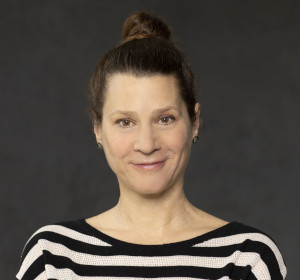
- Titel
- Auf Mastodon war es heute sehr ruhig (DE)
- Redner_in
- Valentina Hirsch
Social Media Managerin 3sat
- Titel
- Fediverse & Öffiverse. Freien Medien in freien Netzwerken. (DE)
- Redner_in
- Alexander Plaum
Fellow Media Lab Bayern / SWR X Lab und Innovation Manager
- Titel
- TEMS aus zivilgesellschaftlicher Perspektive und “Display Europe” als Medienplattform für das Fediverse (DE)
- Redner_in
- Alexander Baratsits
Mitgründer DisplayEurope.eu und für CBA.media im TEMS-dataspace.eu
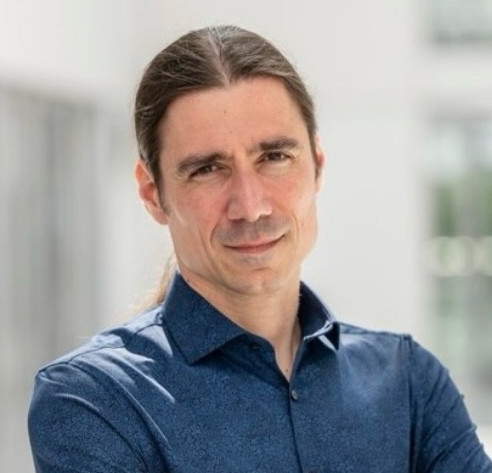
- Titel
- Wie verändert KI unsere Suchgewohnheiten und unsere Social Media Nutzung?
- Redner_in
- Andreas Böhmer
Leiter des ARD Partnermanagement Social Media

- Redner_in
- Denis Schmidt
Softwareentwickler Public Spaces Incubator (PSI), ZDF
Break 13:00 to 13:15h
- Titel
- Workshop Media in the Fediverse - Barcamp (DE)
- Zeit / Ort
- 13:15 / Mainhall
- Details
- With the same participants any you!
Break 15:30 to 16:00h
- Titel
- Panel - Gemeinwohlorientierte Wissens-Infrastrukturen im Fediverse (DE)
- Zeit / Ort
- 16:00 bis 17:00 / Alex Berlin
- Adresse
- Rudolfstraße 1-8 (Eingang Ecke Ehrenbergstraße)
- Details
-
Zentralisierte Soziale Netzwerke sind ein wachsendes Problem. Wissens-Infrastrukturen wie Bibliotheken, Universitäten und öffentlich-rechtliche Medien, aber auch zivilgesellschaftliche Medien wie Offene Kanäle und die Wikipedia dienen nicht Profit, sondern dem Gemeinwohl. Sie alle sind auch Pioniere im Fediverse, dem dezentralen Sozialen Netzwerk, das eine strukturelle Lösung für Probleme der Mega-Plattformen verspricht. Wie kommen die gemeinwohlorientierten Wissens-Infrastrukturen ins Fediverse und wie kommt das Fediverse in die Gesellschaft?
Es diskutieren:
- Alexander Baratsits, DisplayEurope.eu und CBA.media
- Valentina Hirsch, Social Media Managerin 3sat
- Rebecca Sieber, Juristin, Expertin für rechtliche Fragen im Fediverse
- Ralf Stockmann, ZLB Berlin
- Mod: Volker Grassmuck, DigiGes & FediDay
If you would like to attend, please click on a ticket for the workshop and/or panel!
